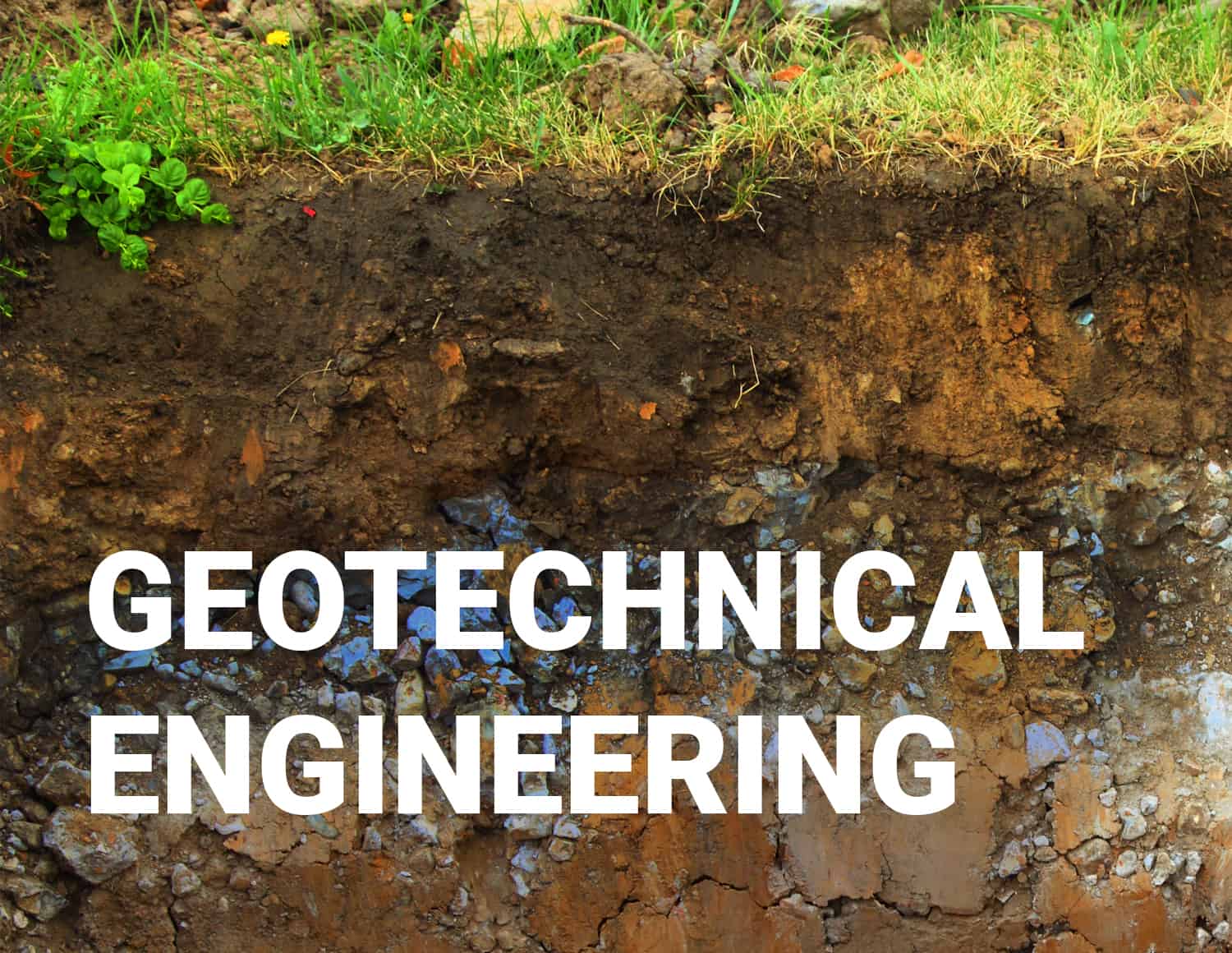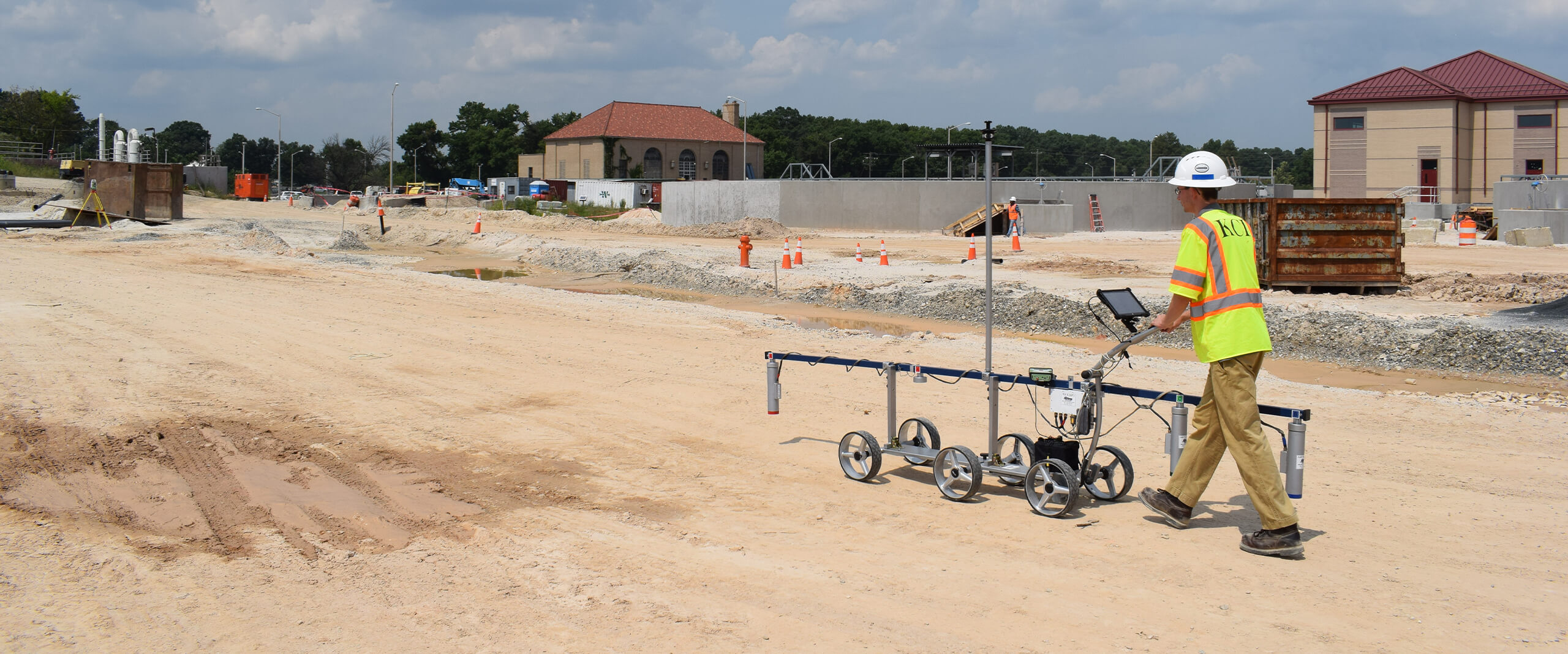Discovering the Function of a Geotechnical Engineer Description and Responsibilities
Discovering the Function of a Geotechnical Engineer Description and Responsibilities
Blog Article
The Relevance of Geotechnical Engineering in Addressing Ecological Obstacles and Enhancing Building And Construction Safety
Geotechnical engineering acts as a cornerstone in the intersection of ecological stewardship and building and construction safety and security, providing essential insights into the habits of soil and rock under various problems. This self-control not only addresses pushing environmental challenges such as dirt disintegration and groundwater security but also enhances the effectiveness of facilities against natural hazards. By executing tactical site examinations and customized reduction measures, geotechnical engineers play an important role in safeguarding both human lives and ecological stability. Yet, the intricacies of these difficulties increase crucial questions regarding the future instructions of this area and its implications for lasting growth.

Duty of Geotechnical Design
Geotechnical design plays an important function in the style and building of infrastructure by dealing with the behavior of dirt and rock products under different conditions. This area of design is crucial for recognizing the communication between structures and the ground, which consists of establishing the load-bearing ability of soil, evaluating stability, and forecasting prospective settlement or failing.
Geotechnical designers are accountable for conducting website examinations, which entail sampling and screening dirt and rock to gather information on their chemical and physical buildings. This details is crucial for developing structures, maintaining walls, and various other earth-retaining structures that ensure safety and security and durability. Furthermore, geotechnical design informs the option of proper construction approaches and materials, therefore lessening risks connected with soil habits.
In addition, the integration of geotechnical design principles into city planning and ecological management is vital for attending to challenges such as ground contamination and groundwater monitoring. By comprehending geotechnical factors, designers can develop lasting services that boost the strength of facilities versus natural threats, while also advertising environmental stewardship. Eventually, the role of geotechnical engineering is indispensable for achieving secure, durable, and eco conscious building techniques.
Dirt Erosion Reduction
Soil disintegration presents a substantial threat to both environmental stability and framework honesty, affecting around 24 billion bunches of fertile soil shed each year worldwide. This phenomenon is intensified by elements such as logging, urbanization, and inadequate farming practices. Geotechnical engineering plays a critical function in establishing efficient soil erosion mitigation techniques that secure both the atmosphere and building jobs.
One technique involves the application of disintegration control methods such as greenery planting, which stabilizes soil via origin systems. In addition, the construction of keeping walls and balconies can efficiently reduce surface area drainage and secure susceptible areas from disintegration. Appropriate drain design is additionally critical; it decreases water build-up and directs excess drainage away from crucial structures.
In addition, geotechnical designers utilize soil stablizing strategies, such as the application of geotextiles and naturally degradable mats, to enhance dirt communication and avoid degradation - all about geotechnical engineering. Routine monitoring and evaluation of erosion-prone sites make it possible for prompt interventions, making certain long-lasting sustainability. By integrating these strategies, geotechnical design not only alleviates the impacts of dirt erosion yet also adds to the resilience of framework against ecological difficulties, ultimately promoting a safer and extra sustainable constructed environment
Groundwater Defense Techniques
Groundwater functions as an important resource for alcohol consumption water, agriculture, and industrial procedures, making its security important for ecological sustainability and public health and wellness. Effective groundwater defense techniques are vital in reducing contamination threats and guaranteeing the long life of this resource.

Normal monitoring of groundwater high quality is likewise vital, allowing very early detection of contamination resources and helping with timely remediation efforts. Utilizing advanced technologies, such as geophysical studies and remote picking up, aids in determining possible threats to groundwater reserves.
Furthermore, public education and stakeholder involvement are vital, cultivating neighborhood assistance for groundwater protection campaigns. geotechnical companies in south africa. By incorporating regulatory procedures, technical improvements, and area involvement, we can produce a thorough framework that safeguards groundwater resources while advertising lasting growth and building methods
Landslide Threat Management
Landslides position substantial hazards to both human safety and facilities, making efficient threat monitoring strategies vital. Geotechnical design plays a critical role in identifying, evaluating, and mitigating landslide dangers. A thorough understanding of incline security, dirt check this mechanics, and hydrology is important for establishing efficient danger administration plans.
The primary step in landslide danger administration includes detailed website examinations, that include geological mapping and dirt screening. These examinations aid designers review the possibility for landslides by recognizing essential factors such as incline angles, dirt make-up, and water web content. Utilizing innovative modern technologies such as remote picking up and geophysical studies can improve the accuracy of these assessments.
As soon as threats are recognized, proper mitigation measures can be implemented. These might consist of engineering services such as retaining walls, water drainage systems, and incline stabilization techniques. In addition, monitoring systems need to be developed to discover signs of ground activity and adjustments in water levels, permitting aggressive treatments.

Enhancing Construction Safety
Construction websites often present a myriad of hazards that can jeopardize employee safety and security and task honesty. Geotechnical design plays an important function in improving building safety by providing important insights right into subsurface problems. With extensive soil and rock analysis, geotechnical designers can recognize prospective dangers, such as soil instability, groundwater concerns, and seismic susceptabilities, which might jeopardize the security of construction activities.
Carrying out geotechnical solutions, such as appropriate structure design and the usage of retaining frameworks, mitigates these dangers dramatically. These services not just ensure the stability of the frameworks being constructed however additionally create a safer working setting for construction workers.
In addition, fostering a culture of security with training and adherence to developed safety and security protocols further improves building and construction website safety and security. By why not find out more incorporating geotechnical experience into the planning and execution phases, building and construction tasks can accomplish greater safety and security requirements, eventually securing employees and guaranteeing successful job completion.
Final Thought
In verdict, geotechnical engineering offers as an essential self-control in promoting and tackling ecological difficulties construction safety and security. With effective dirt erosion reduction, groundwater protection strategies, and landslide threat administration, geotechnical engineers add to the advancement of resilient facilities.
Geotechnical design offers as a cornerstone in the junction of ecological stewardship and construction safety, providing critical insights into the actions of soil and rock under numerous conditions. Geotechnical engineering educates the selection of appropriate building and construction approaches and products, consequently minimizing threats associated with dirt actions.
Geotechnical engineering plays an essential role in establishing reliable dirt erosion reduction approaches that safeguard both the atmosphere and building and construction tasks.
Furthermore, geotechnical designers use soil stabilization methods, such as the application of geotextiles and eco-friendly mats, to improve dirt communication and protect against degradation. Through extensive dirt and rock evaluation, geotechnical designers can recognize possible risks, such as soil instability, groundwater issues, and seismic vulnerabilities, which may endanger the safety and security of construction activities.
Report this page